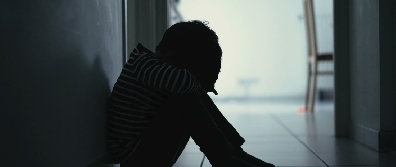Utah Sex Assault and Domestic Violence Mobile App
The overwhelming majority of sexual assault victims stay silent about what has happened to them. A study of women in Utah found that 39.6 percent reported experiencing physical violence, rape, and/or stalking. Utah has a population of over 3 million. Of those that are sexually assaulted, it is estimated that 75 percent of all sexual assaults go unreported. That means there could be potentially hundreds of thousands of women across the state that are suffering from the mental, physical, and emotional fallout of a sexual assault or domestic assault alone. Legislators in Utah are attempting to make providing support to domestic violence and sex assault victims easier and more accessible so that men and women alike are afforded guidance after an ordeal.
An overwhelming number of abuse victims stay silent about their assault experience. There are many factors that lead an abused person to quiet themselves. One of the big factors is the fact that 8 out of 10 rapes are committed by someone the victim personally knows. A third of perpetrators are the victim’s current or former love interest, including spouses, boyfriends and girlfriends. This type of violence is often referred to as intimate partner violence (IPV).
Why do Victims Not Report?
In a study conducted by the Department of Justice, of those that did not report a sexual violence crime to police, 40 percent said they either feared retaliation, believed it was a personal matter, or wanted to protect the perpetrator from arrest. Another 30 percent gave no reason for offered another reason why they did not report the crime.
Those that hide their abuse are often forced to work through their trauma on their own. The traumatic effects of a sexual assault or domestic assault can be life altering, especially if the victim is left unsupported.
The lasting consequences in the aftermath of a sexual assault include an array of negative health effects. Many abuse victims in turn abuse substances to deal with their damage. Nearly 20 percent of sexual violence victims binge drink. Victims are also twice as likely to become an every day smoker than non-victims.
There are also non-specific health consequences. The Utahns who suffered sexual violence have three times the prevalence of poor health as non-victims. Mental health is perhaps damaged the most with nearly 40 percent of victims reporting seven or more poor mental health days in the past month versus 15 percent for non-victims. The mental health problems associated with sexual violence includes anxiety, post traumatic stress disorder, forgetfulness, an inability to do simple errands alone, strained relationships, and “health risk behaviors” such as unhealthy diet behavior, criminal behavior, and the aforementioned prevalence of binge drinking.
Will a Mobile App Help Victims?
It is estimated that the direct and indirect damage to the state is over $5 billion a year. In an effort to reduce the cost to the state and alleviate the damaging effects of sexual assault and domestic violence on victims, Republican House Representative Cheryl Acton of the 43rd District introduced HB 427 to hopefully create a state sponsored mobile application that will give victims with real time support and advice from qualified professionals from the Utah Department of Health. Besides allowing users to call or text health professionals, the app will also be required to allow users to store evidence of abuse such as photos, emails, or texts. Furthermore, the app will be required to include an option that allows the user to alert authorities that the user is in danger of an attack.
Usually, when lawmakers attempt to address domestic violence and sexual assault they focus on punishing offenders more harshly. While there is not much indication one way or another that the bill will pass, it is encouraging that lawmakers are attempting to address the trauma victims are experiencing through the convenience of technology.















Comments